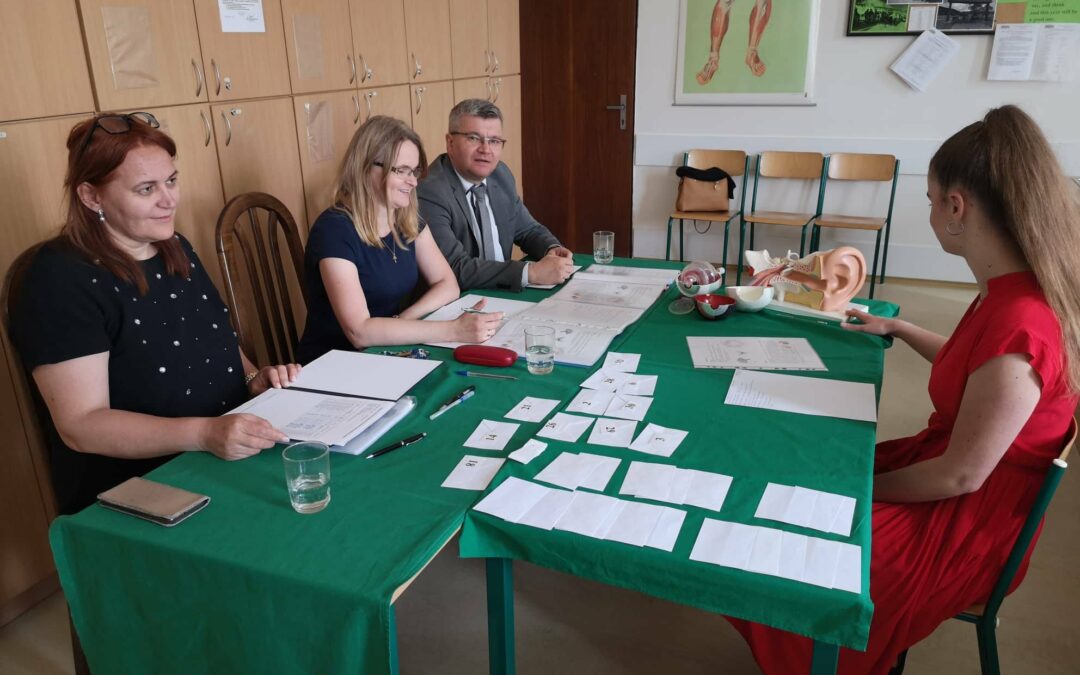As I write this I’ve recently finished the whirlwind that comes just before grades are due. Much of this semester’s grades for my graduating class consisted of videos that they recorded to help them prepare for the oral portion of their school leaving exams (the maturity test, or Maturita). I spent hours listening to problems young job-seekers face, advantages and disadvantages of globalization, and economic challenges in Slovakia. My dad, overhearing the videos from the other room, was quite impressed. I am too. Here’s a sample question from the school-leaving exam:
English and English-speaking countries influence Slovakia in many ways. Discuss native English-speaking countries and English as a language from the following perspectives:
1. Why do you think the English language has become so universal? What are some of the advantages and disadvantages of the fact that English is such a dominant, global language?
2. Should all students in Slovakia be required to learn some English? Why or why not?
3. Is the widespread presence of English-language cultural products harmful to Slovak culture? Should more be done to make sure good Slovak books/films/music are not pushed out of the marketplace by English products?
4. Compared to most English-speaking countries, awareness of Slovakia abroad is quite low. Could/should more be done to increase the visibility of Slovakia in other countries? Why or why not? What could be done?
During their final oral exam, students see the questions for the first time 20 minutes before they must speak to a panel of three judges (one of whom they have never met) for 20 minutes. The preceding question is half of the oral exam. For the other half, students must also answer a literature question and act out a role play with one of their examiners. The exam is incredibly stressful, even for the best of students, partially because they complete these oral exams in four or five different subjects the week before they (hopefully) graduate.
Young people are expressing mental health struggles to a greater extent these days than even a few years ago before covid lockdowns. The exam doesn’t help students’ mental health and is not even required for entry into many universities. Yet there is at least one significant benefit to requiring these exams, and that is the fact that these amazing students who have learned about economics, health care, and their country’s relations with the world, in addition to a dozen other themes, are much more prepared to be global citizens. I’m not certain it is worth the stress for the students (and teachers), but it certainly is an honor to be teaching things that truly matter.
As Albert P’Rayan stated, “Teachers become educators when they realise that they have a deep sense of responsibility towards society and feel the need to act as agents of social change. Educators are not mere givers/sharer/creators of knowledge; they enable students to think creatively, critically and productively. Educators are teachers who believe that they have a mission to save the world from disasters and make it a better place to live in.” I would argue this is also the job of a missionary. And I’m proud to call it my job.
Thank you for supporting me and the other Central Europe Teachers. Please follow us on social media and send potential educator-missionaries our way, since interviews for the 2023-24 school year have already begun!
Naomi Sveholm, Central Europe Teachers
www.facebook.com/elcacet
www.instagram.com/elcacet
